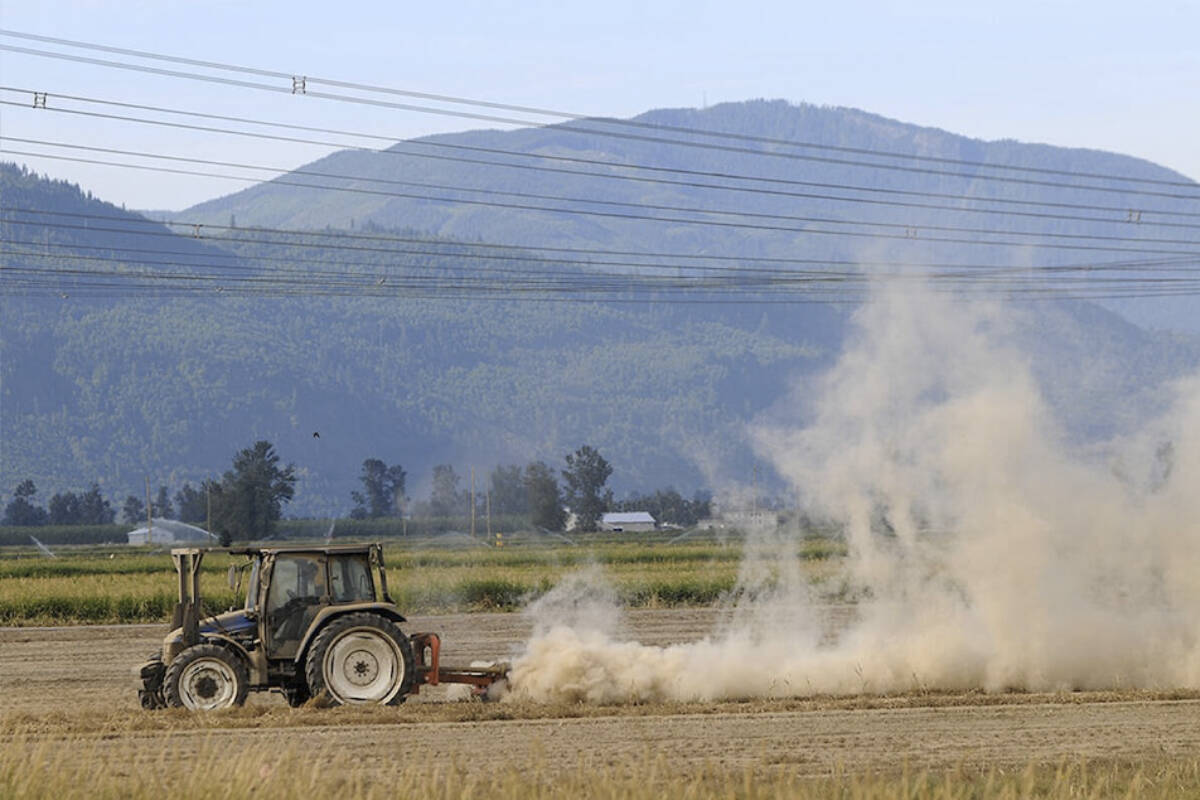Abbotsford’s ‘Silicon Valley’ provides solution to farming scarcity

If approved, the Tech District would conduct agricultural research in collaboration with local farmers and producers throughout the Fraser Valley. (Abbotsford News file photo)
Dating back to the Neolithic Revolution 12,000 years ago, the introduction of agriculture marked a cultural phenomenon that marked the first profound change in the relationship between humanity and the environment.
While the domestication of animals, irrigation and many other founding methods of agriculture remains today, incremental technological advancements have drastically improved the way we grow, raise and consume food from farm to table.
As advancements continue, a team of Abbotsford developers and ecosystem builders are working to put the city on the map as a provincial and national hub for agricultural technology, through the establishment of the Abbotsford Tech District (ATD).
RELATED: Abbotsford Tech District urges city to ‘get this thing moving’
The tech district – developed by Auguston Town Development Inc. – is a proposed 100-acre community in the McKee Peak area of Sumas Mountain.
Their mission? Integrate education, research, innovation, and commercialization in an effort to provide solutions towards food scarcity and economic stability.
Gavin Dew, ATD chief strategy officer, says there’s a common misconception as to what agricultural technology really means.
“People often think that agri-tech means this futuristic world. The grounded real-world approach is that we’re simply talking about innovative ways to bring more jobs, more productivity, and strengthen our community right here in Abbotsford. Tractors, irrigation, fertilizers, even the plow pulled by an ox were all once leading edge agri-tech, and now we take them for granted. The agricultural histories you learn in school are all a part of agri-tech.”
The vision behind the Tech District is to build a centre for innovation and food security; spaces for start-ups, entrepreneurs and post-secondary programs; complementary commercial and professional services; thousands of new homes; and farm-to-table restaurants and coffee shops.
Dew says a multi-billion-dollar project of this magnitude would attract Canadians from all over British Columbia to Abbotsford, rather than Abbotsford residents having to travel elsewhere for great employment opportunities.
In addition to community and economic growth, the Tech District would be tasked with conducting agricultural research in collaboration withlocal farmers and producers throughout the Fraser Valley. This effort aims to establish adaptations for the growing environmental threats impacting B.C. farmers.
In 2023, B.C. recorded its worst fire season yet, with a total of 2,245 wildfires destroying more than 3.02 million hectares. It is estimated that a combination of fires, floods and droughts reduced natural resource revenue, causing a $1 billion increase in efforts to combat the impact of environmental disasters.
Despite concerns for the future, Dew says the Tech District presents great opportunities to assist the province in adapting to ever-growing challenges around housing, the environment and the economy.
“Now, unlike almost any other time in history, agri-tech is coming into the mainstream spotlight because serious issues like climate change, atmospheric rivers, drought and wildfires across the province have drawn a high level of attention toward food security and food production, Dew says. “We need to treat this as an opportunity to lead.”
To learn more about the vision behind the Abbotsford Tech District, be sure to follow the development project online.
